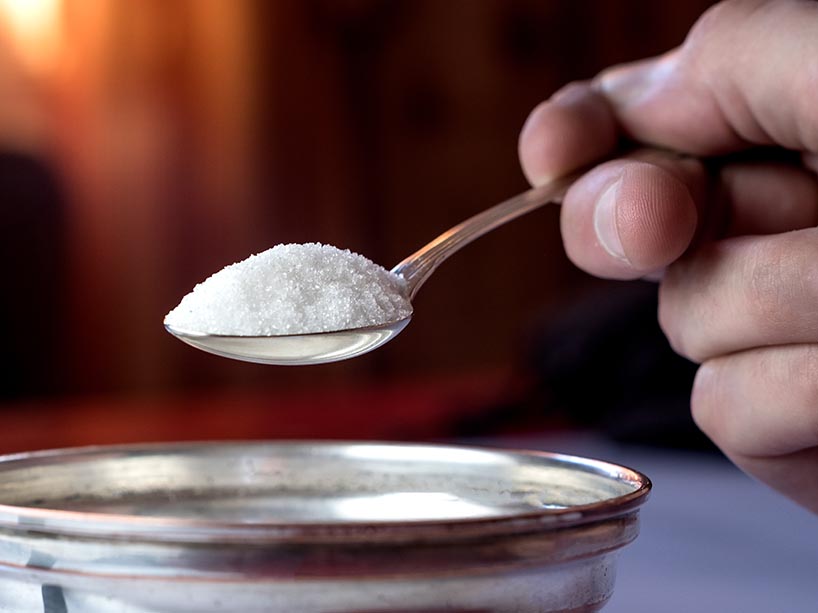New research finds rare sugar can help manage blood sugar, reduce calorie intake

New TMU research found allulose, a rare and low-calorie sugar, can reduce sugar spikes. Photo by Adobe Stock.
It sounds too good to be true: a naturally occurring sugar that has fewer calories than regular white sugar, is almost as sweet and helps reduce fluctuations in blood sugar levels when added to food.
Toronto Metropolitan University (TMU) School of Nutrition Professor Nick Bellissimo studied the rare sugar, called allulose, with the help of undergraduate researchers. Allulose is a naturally occurring sugar found in small amounts in foods such as figs, raisins and maple syrup and is chemically similar to fructose. Professor Bellissimo found that adding a small amount of allulose to food can significantly reduce sugar spikes following a meal.
The research team conducted the study by using a simulated gastrointestinal tract in TMU’s Nutrition Discovery Labs. This technology, known as the DRUID, mimics the human digestive process, allowing researchers to closely observe how allulose interacts with carbohydrates. In the study, allulose was added to rice, and the mixture was processed through the simulated digestive system. The results were significant: for every gram of allulose added to the rice, there was a corresponding one per cent reduction in blood glucose levels.
“Many individuals are seeking dietary solutions to manage fluctuations in their blood sugar levels,” said professor Nick Bellissimo, adding that individuals living with Type 1 and Type 2 diabetes often face challenges in maintaining stable blood glucose levels.
The researchers believe allulose may block certain enzymes responsible for glucose storage or interact with the starch matrix of carbohydrates to slow the release of glucose into the bloodstream. This in turn reduces blood sugar spikes.
Widespread health benefits
The potential benefits of allulose extend beyond managing blood sugar. Because allulose has only about 10 per cent of the calories of regular sugar, at 0.2 calories per gram, and is approximately 70 per cent as sweet, it is an attractive alternative for individuals looking to reduce calorie intake. While the sugar, also known as allSWEET, is widely available in the U.S., it is not yet approved as a sweetener in Canada. However, allulose is listed as an ingredient in Canada’s natural health product database.
With Canada set to introduce front-of-package warning labels for foods high in sugar, sodium and saturated fat by Jan. 1, 2026, food producers are under pressure to change their product recipes. Allulose could play a crucial role in helping food manufacturers reduce the sugar content of pre-packaged foods like granola bars and cereals.
While this study marks the first time the impact of allulose on blood glucose has been examined using a simulated digestive system, Professor Bellissimo and his team are already planning human clinical trials to further explore the sugar's potential.
“The Effect of Allulose on the Attenuation of Glucose Release from Rice in a Static In Vitro Digestion Model” (external link) was published in the journal Foods on July 23, 2024. The research was supported by Anderson Advanced Ingredients.
Related stories:





